
Tegucigalpa: The Heartbeat of Honduras
Tegucigalpa, often called 'Tegus' by the locals, is the bustling capital of Honduras. Nestled in a valley surrounded by mountains, the city offers a blend of urban life and natural beauty. The streets are a mix of colonial architecture and modern buildings, providing a unique charm that appeals to all visitors. History enthusiasts will find Tegucigalpa rich in cultural heritage. The city's roots date back to the 16th century, and its history is well-preserved in landmarks such as the Metropolitan Cathedral and the Basilica of Suyapa. Museums, like the Museum of National Identity, offer glimpses into the nation's past and its journey to the present. For nature lovers, the nearby La Tigra National Park is a must-visit. Just a short drive from the city center, this park boasts lush forests, diverse wildlife, and scenic hiking trails. The park's cool climate provides a refreshing escape from the city's warm temperatures. Tegucigalpa is also a hub for culinary delights. From street food stalls to upscale restaurants, the city offers a variety of flavors that reflect the heart of Honduran cuisine. Don’t miss trying baleadas, a local favorite made with flour tortillas, beans, and cheese. Shopping enthusiasts will enjoy exploring local markets such as Mercado San Isidro, where they can find handmade crafts, fresh produce, and unique souvenirs. The vibrant atmosphere of these markets offers a true taste of local life and culture. Whether you're a history buff, nature lover, or foodie, Tegucigalpa has something to offer. Its friendly locals and rich culture make it a memorable destination for all who visit.
Local tips in Tegucigalpa
- Visit the city center during the early morning or late afternoon to avoid the midday heat.
- Hire a local guide when exploring La Tigra National Park for the best experience.
- Try to learn a few basic Spanish phrases. It will enhance your interactions with locals.
- Use reputable taxi services or ride-sharing apps for safer transportation around the city.
- Keep an eye on your belongings, especially in crowded places like markets and public transport.
Tegucigalpa: The Heartbeat of Honduras
Tegucigalpa, often called 'Tegus' by the locals, is the bustling capital of Honduras. Nestled in a valley surrounded by mountains, the city offers a blend of urban life and natural beauty. The streets are a mix of colonial architecture and modern buildings, providing a unique charm that appeals to all visitors. History enthusiasts will find Tegucigalpa rich in cultural heritage. The city's roots date back to the 16th century, and its history is well-preserved in landmarks such as the Metropolitan Cathedral and the Basilica of Suyapa. Museums, like the Museum of National Identity, offer glimpses into the nation's past and its journey to the present. For nature lovers, the nearby La Tigra National Park is a must-visit. Just a short drive from the city center, this park boasts lush forests, diverse wildlife, and scenic hiking trails. The park's cool climate provides a refreshing escape from the city's warm temperatures. Tegucigalpa is also a hub for culinary delights. From street food stalls to upscale restaurants, the city offers a variety of flavors that reflect the heart of Honduran cuisine. Don’t miss trying baleadas, a local favorite made with flour tortillas, beans, and cheese. Shopping enthusiasts will enjoy exploring local markets such as Mercado San Isidro, where they can find handmade crafts, fresh produce, and unique souvenirs. The vibrant atmosphere of these markets offers a true taste of local life and culture. Whether you're a history buff, nature lover, or foodie, Tegucigalpa has something to offer. Its friendly locals and rich culture make it a memorable destination for all who visit.
When is the best time to go to Tegucigalpa?
Iconic landmarks you can’t miss
Parque El Picacho
Explore the breathtaking landscapes and cultural richness at Parque El Picacho, a national park in Tegucigalpa, Honduras.
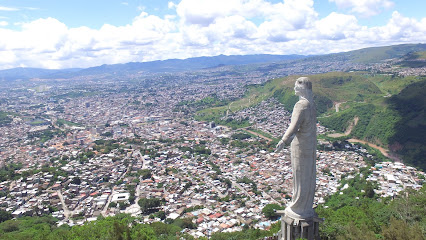
Hotel Real InterContinental Tegucigalpa
Discover unparalleled luxury and comfort at Hotel Real InterContinental Tegucigalpa, your perfect retreat in Honduras' vibrant capital.
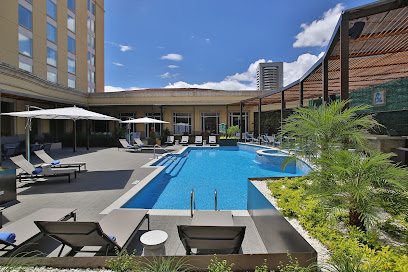
Parque Central Tegucigalpa
Explore the vibrant heart of Tegucigalpa at Parque Central, a lush park surrounded by rich history and local culture.
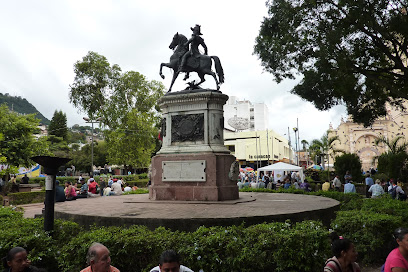
Clarion Hotel Real Tegucigalpa
Discover comfort and convenience at Clarion Hotel Real in Tegucigalpa, where modern amenities meet the warmth of Honduran hospitality.

Basílica de Nuestra Señora de Suyapa
Experience the architectural beauty and spiritual significance of Tegucigalpa's iconic Basílica de Nuestra Señora de Suyapa, a pilgrimage site for many.
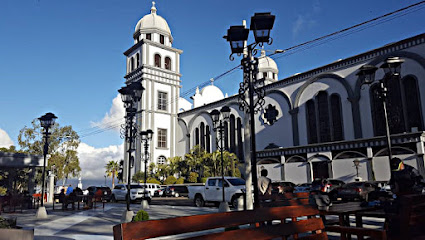
El Patio
Experience authentic Honduran cuisine at El Patio in Tegucigalpa, where traditional flavors and a warm atmosphere come together for an unforgettable dining experience.
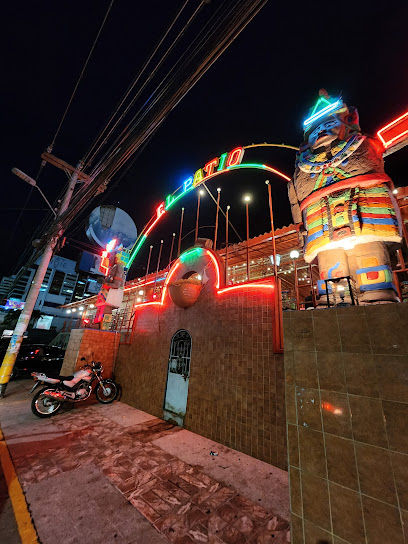
La Creperia
Experience the best of Tegucigalpa at La Creperia, where delicious crepes, burgers, and pastries await in a family-friendly atmosphere.
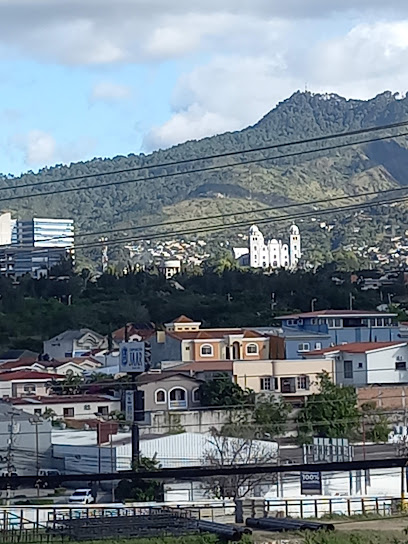
Parque Cerro Juana Lainez
Discover the beauty of nature at Parque Cerro Juana Lainez, a tranquil park in Tegucigalpa known for its lush landscapes and breathtaking views.
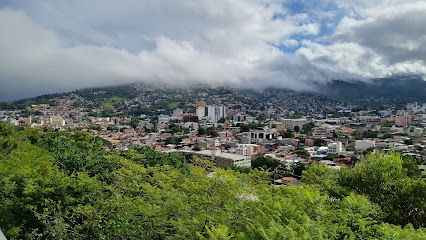
Chiminike
Explore Chiminike, a vibrant children's museum in Tegucigalpa, designed to ignite creativity and learning in young minds through interactive exhibits.
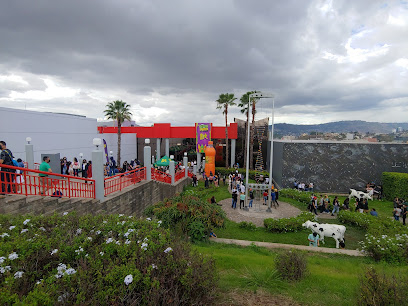
Museum for National Identity
Explore the rich cultural tapestry of Honduras at the Museum for National Identity in Tegucigalpa, where art and history come alive.
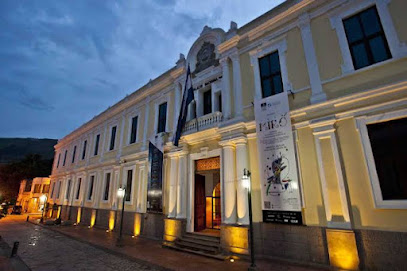
La Leona Park
Experience the natural beauty and vibrant atmosphere of La Leona Park, a serene escape in the heart of Tegucigalpa, perfect for relaxation and exploration.
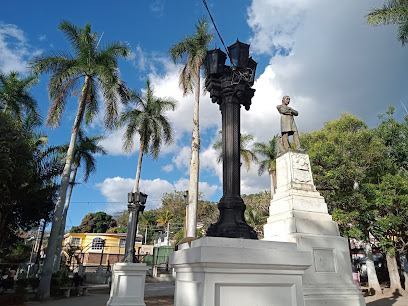
Building Center Tower Morazan
Experience shopping, dining, and entertainment at the Building Center Tower Morazan in Tegucigalpa, a vibrant hub for tourists and locals alike.
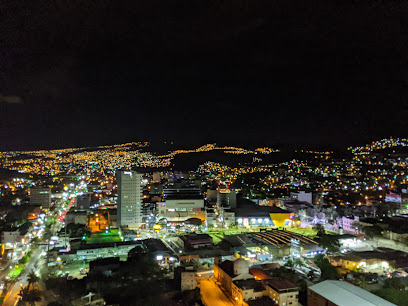
Metropolitan Zoo Rosy Walther
Visit Metropolitan Zoo Rosy Walther in Tegucigalpa for a family-friendly adventure filled with exotic wildlife and stunning natural beauty.
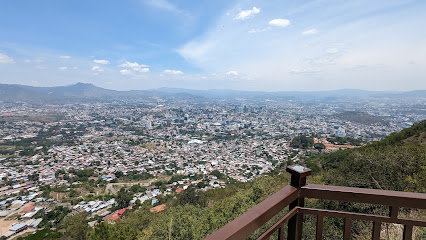
Mc Allister's Irish Pub
Discover a taste of Ireland in Tegucigalpa at Mc Allister's Irish Pub, where hearty meals and friendly vibes await.
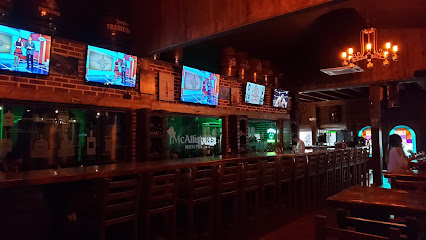
Finca La Cantadora
Explore the natural beauty and agricultural richness of Finca La Cantadora, a serene farm experience just outside Tegucigalpa.
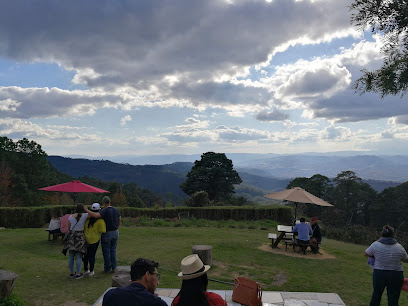
Unmissable attractions to see
Parque El Picacho
Discover the breathtaking landscapes and diverse wildlife of Parque El Picacho, a must-visit national park in Tegucigalpa, Honduras.
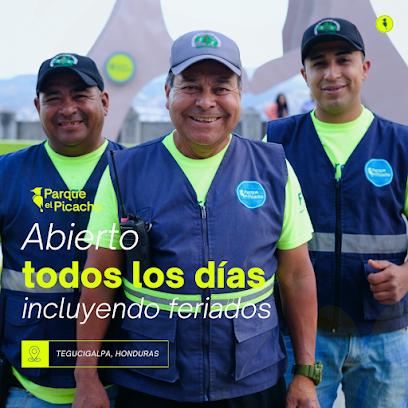
Parque Central Tegucigalpa
Experience the vibrant culture and charm of Tegucigalpa at Parque Central, a lush urban oasis perfect for relaxation and exploration.
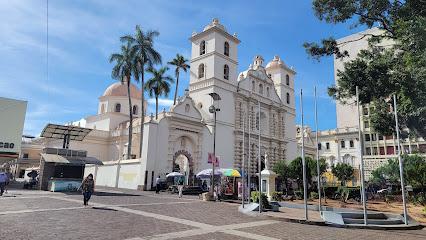
Basílica de Nuestra Señora de Suyapa
Discover the beauty and spirituality of Basilica de Nuestra Señora de Suyapa, an iconic pilgrimage site in Tegucigalpa, Honduras, rich in culture and history.
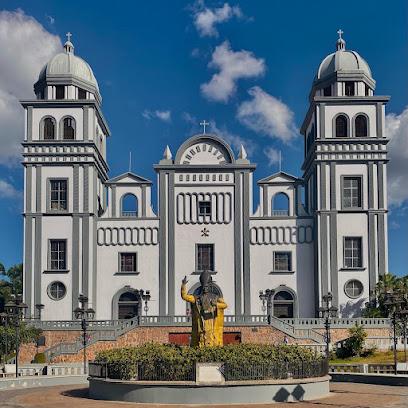
Parque Cerro Juana Lainez
Explore the lush landscapes and breathtaking views of Parque Cerro Juana Lainez, a serene park perfect for relaxation and outdoor adventures in Tegucigalpa.
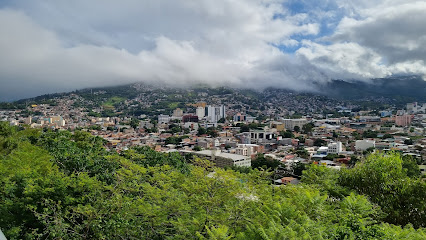
Museum for National Identity
Discover the essence of Honduras at the Museum for National Identity, where art meets history in Tegucigalpa's cultural heart.
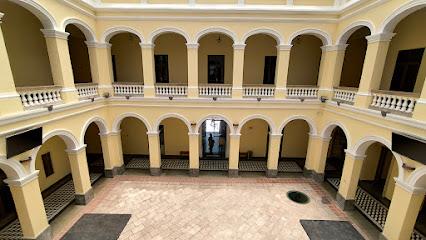
Chiminike
Explore Chiminike, Tegucigalpa's premier children's museum, where fun meets education in an interactive environment perfect for families and curious minds.
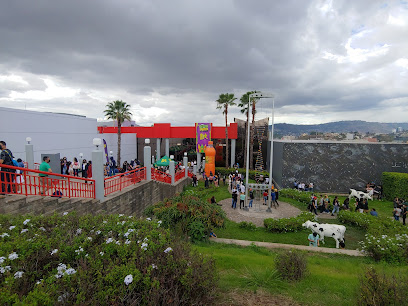
Tegucigalpa Honduras Temple
Experience the serene beauty and spiritual ambiance of the Tegucigalpa Honduras Temple, a must-visit destination in Tegucigalpa.
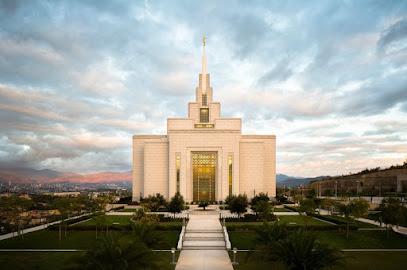
Parque Nacional La Tigra
Explore the breathtaking biodiversity of Parque Nacional La Tigra, a natural haven near Tegucigalpa, perfect for hiking and nature enthusiasts.
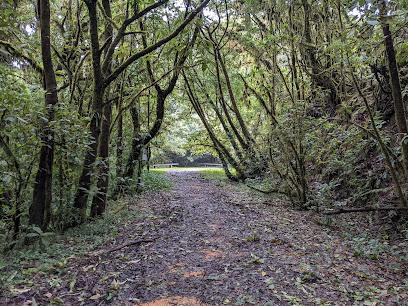
Iglesia Santa María de los Dolores
Experience the spiritual beauty and cultural richness of Iglesia Santa María de los Dolores, a must-visit Catholic church in Tegucigalpa, Honduras.
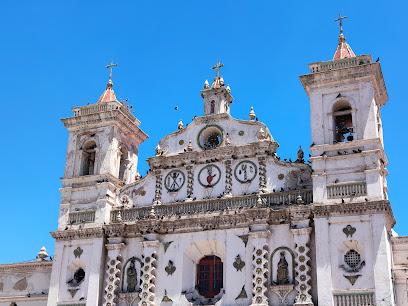
Parque La Concordia
Discover tranquility at Parque La Concordia, a beautiful park in Tegucigalpa, perfect for relaxation, picnics, and enjoying nature.
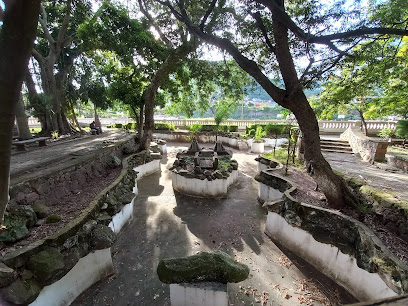
Museo de la Memoria - Antigua Casa Presidencial
Explore the rich historical narrative of Honduras at Museo de la Memoria, a captivating museum in Tegucigalpa that uncovers the essence of the nation's past.
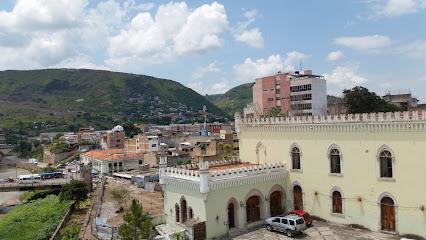
Iglesia de la Merced
Discover the beauty and history of Iglesia de la Merced, a stunning baroque church in Tegucigalpa, showcasing the rich cultural heritage of Honduras.
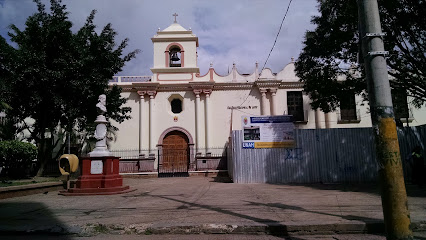
Cultural Center of Spain in Tegucigalpa
Explore the Cultural Center of Spain in Tegucigalpa, a vibrant hub for art, cinema, and literature that celebrates the heritage of Honduras and Spain.
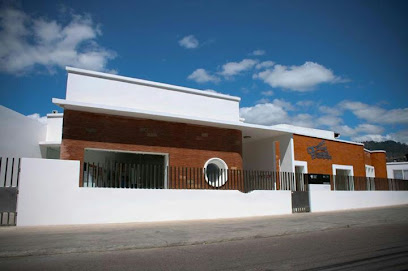
Museo del Hombre Hondureno
Explore the cultural heartbeat of Honduras at Museo del Hombre Hondureno, a captivating museum in Tegucigalpa dedicated to the country's diverse heritage.
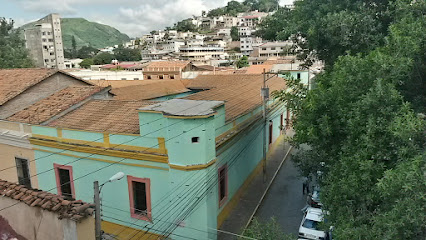
Castillo Bellucci
Discover the architectural beauty and rich culture of Honduras at Castillo Bellucci, Tegucigalpa's enchanting open-air museum.
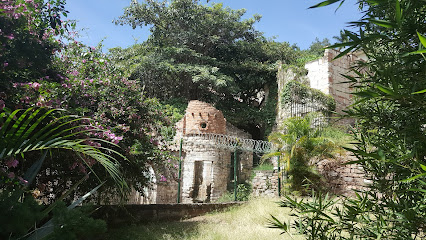
Essential places to dine
El Morito 2
Discover El Morito 2 in Tegucigalpa - where authentic Honduran flavors meet vibrant dining experiences.
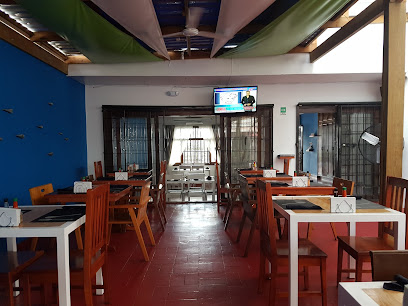
El Patio
Experience authentic Honduran flavors at El Patio in Tegucigalpa – where delicious food meets warm hospitality.
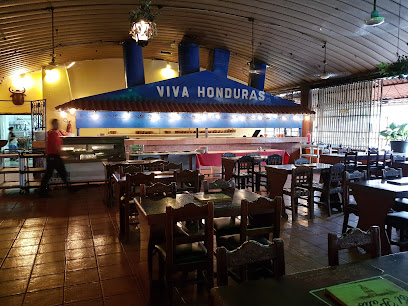
La Creperia
Discover La Creperia in Tegucigalpa – where delicious crepes meet family-friendly dining in a cozy atmosphere.
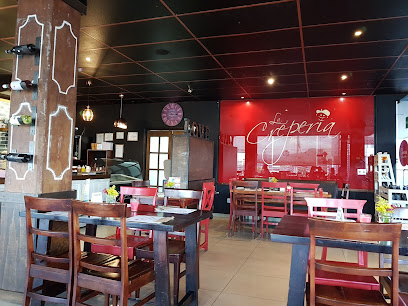
Ruby Tuesday
Savor the best of American cuisine at Ruby Tuesday in Tegucigalpa - perfect for families and travelers seeking comfort food.
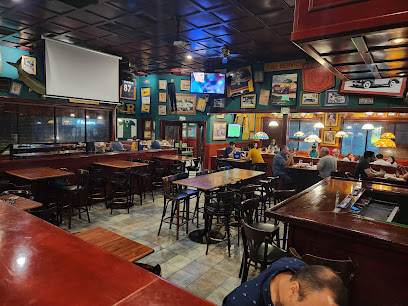
Hacienda Real Honduras
Discover exquisite Latin American cuisine at Hacienda Real Honduras - where every meal is a celebration of flavor and culture.
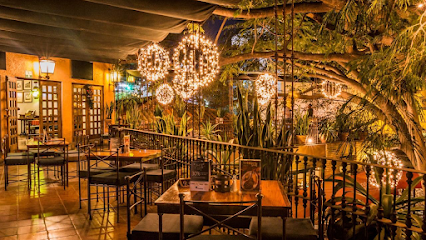
NiFu NiFa
Experience the best of Honduran cuisine at NiFu NiFa in Tegucigalpa - where tradition meets innovation in every dish.
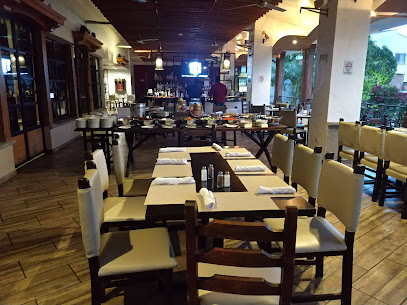
Royal Palace
Discover the rich history and stunning architecture at Tegucigalpa's Royal Palace - an essential stop for every traveler in Honduras.
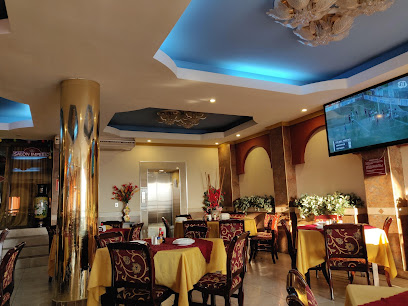
Il Padrino Ristorante
Experience authentic Italian flavors at Il Padrino Ristorante in Tegucigalpa - where every dish tells a story.
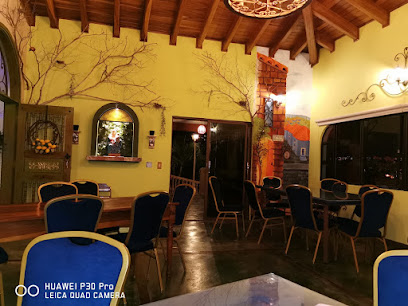
Restaurante Mirawa
Experience authentic Honduran cuisine in a welcoming atmosphere at Restaurante Mirawa in Tegucigalpa.
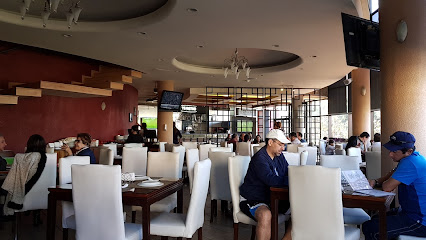
La Cumbre
Discover culinary excellence at La Cumbre in El Hatillo - where breathtaking views meet exquisite flavors in every dish.
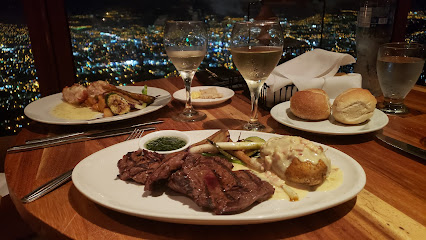
Pizzeria Tito
Discover authentic Italian flavors at Pizzeria Tito in Tegucigalpa—where every slice tells a story.
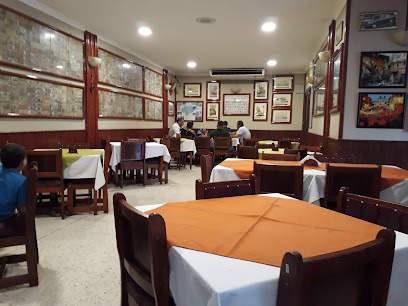
Magnolia Honduras
Experience the vibrant flavors of Tegucigalpa at Magnolia Honduras - where local traditions meet modern cuisine.
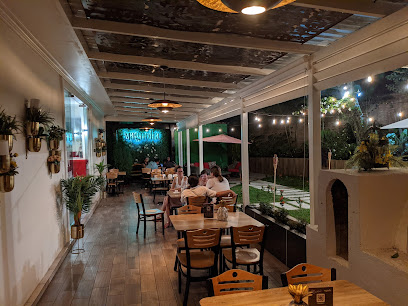
RadioHouse
Experience vibrant dining at RadioHouse in Tegucigalpa – where local flavors meet international cuisine in a warm atmosphere.
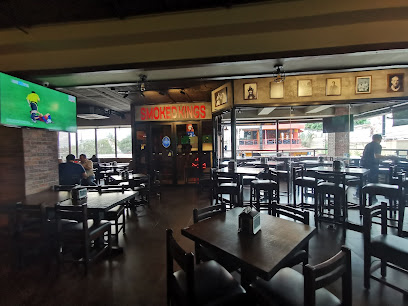
Cubanos Kitchen
Experience authentic Cuban cuisine at Cubanos Kitchen in Tegucigalpa - where every dish tells a story.
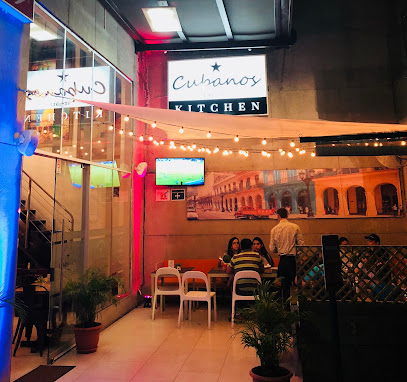
Leña y Fuego
Experience delicious pizzas and live music at Leña y Fuego, a top dining destination in Tegucigalpa blending culinary delight with vibrant entertainment.
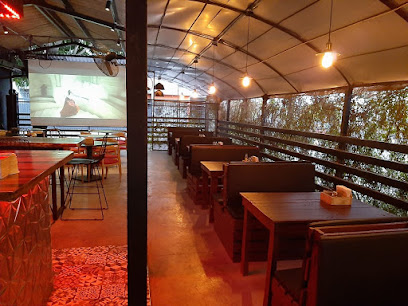
Markets, malls and hidden boutiques
Kun&Bolt
Discover unique gifts and artisanal treasures at Kun&Bolt, Tegucigalpa's premier destination for authentic Honduran souvenirs.
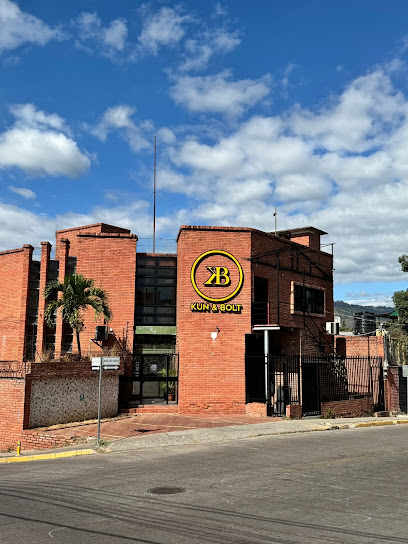
Valú
Explore Valú, Tegucigalpa’s premier souvenir store, offering authentic local crafts and cultural artifacts that capture the essence of Honduras.
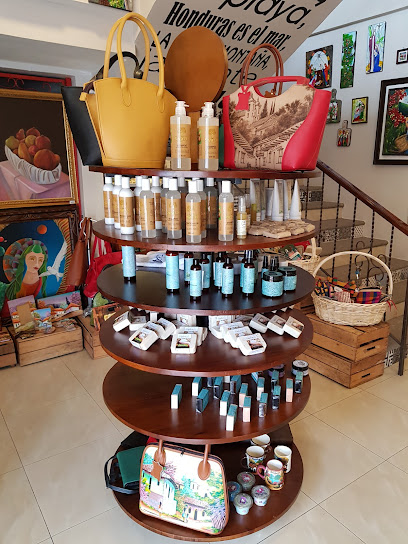
CasaShop Honduras
Discover authentic Honduran crafts and souvenirs at CasaShop, Tegucigalpa's premier shopping destination for tourists.
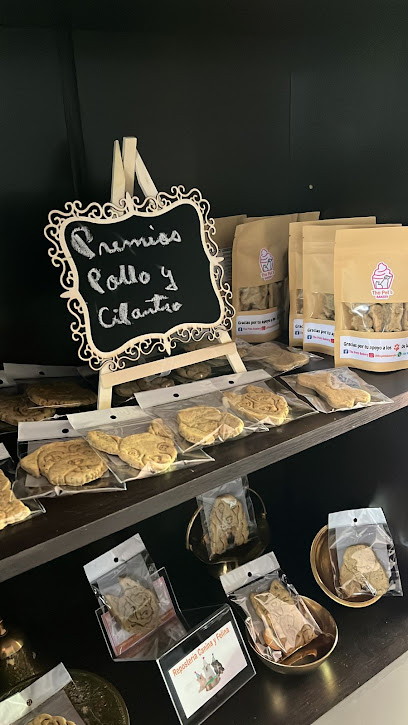
Alli shop hn
Discover unique gifts and stylish women's clothing at Alli Shop HN, a charming destination in Tegucigalpa that celebrates Honduran craftsmanship.
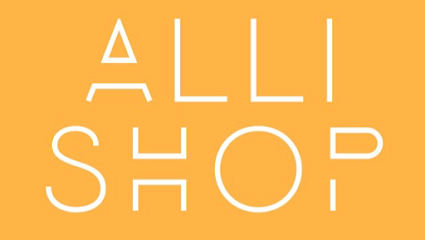
Mayan Shop Souvenirs
Explore Mayan Shop Souvenirs in Tegucigalpa Airport for authentic handicrafts, art, and clothing that embody the spirit of Honduras.
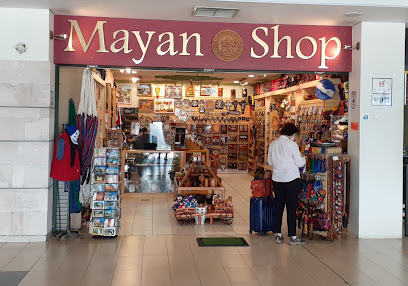
Galeria de Diseño Honduras
Explore Galeria de Diseño Honduras in Tegucigalpa for exquisite gifts and handcrafted treasures that showcase the vibrant spirit of local artisans.
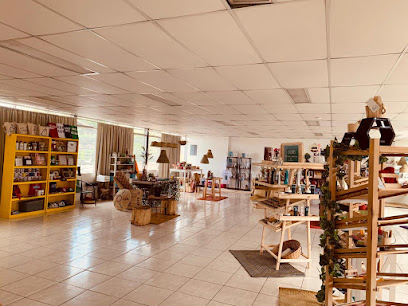
J&F Shop Honduras
Explore J&F Shop Honduras in Tegucigalpa for a unique selection of local clothing and high-quality fashion at fair prices.
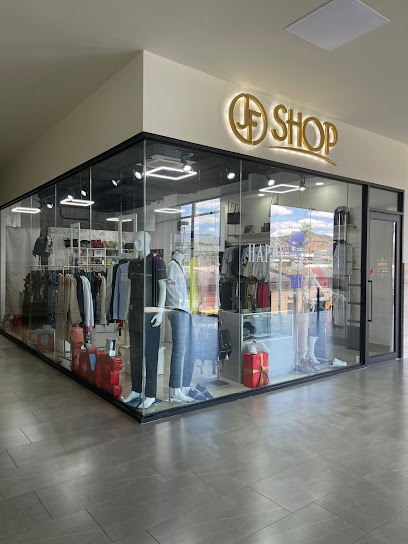
Tienda Stuff’s
Discover unique gifts and local crafts at Tienda Stuff’s in Tegucigalpa, the perfect spot for memorable souvenirs!

V Magic
Discover unique Honduran handicrafts and souvenirs at V Magic, the premier gift shop in Tegucigalpa, where local craftsmanship meets unforgettable shopping.
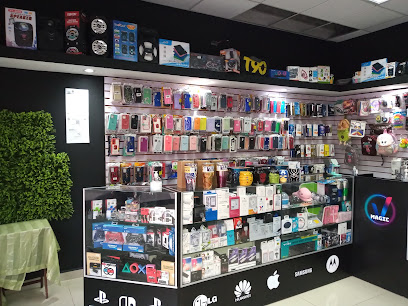
Lesao's shop
Explore the charm of Lesao's Shop in Tegucigalpa, a unique destination for vintage clothing and sustainable fashion enthusiasts.

ANRA SHOP
Explore ANRA SHOP in Tegucigalpa for unique clothing that reflects the vibrant culture and style of Honduras, making your wardrobe truly special.
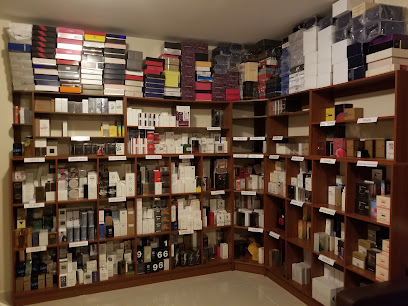
Vintage Boutique
Explore vintage fashion at Vintage Boutique in Tegucigalpa, where timeless elegance meets modern flair, perfect for a unique shopping experience.

KADOS.F
Discover unique local fashion at KADOS.F, Tegucigalpa's top clothing store, offering a blend of traditional and contemporary styles.

Eucalipto Shop HN
Discover local fashion at Eucalipto Shop HN in Tegucigalpa, where vibrant styles meet unique cultural influences.

Weekend Colors
Immerse yourself in the vibrant culture of Tegucigalpa at Weekend Colors, where unique local crafts and products await every visitor.
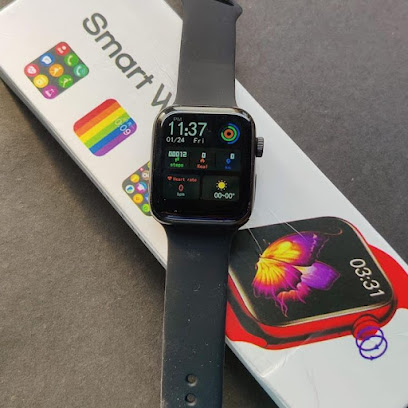
Essential bars & hidden hideouts
Beer Garden Clarion
Discover the essence of Tegucigalpa at Beer Garden Clarion, where refreshing drinks and lively atmosphere come together for an unforgettable experience.
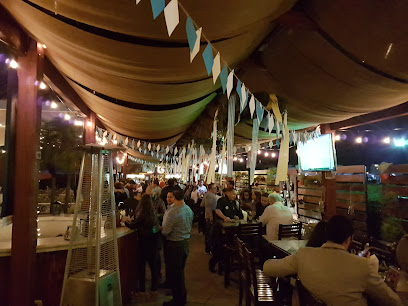
Mc Allister's Irish Pub
Discover the authentic taste of Ireland at Mc Allister's Irish Pub in Tegucigalpa, where great food meets a vibrant atmosphere.
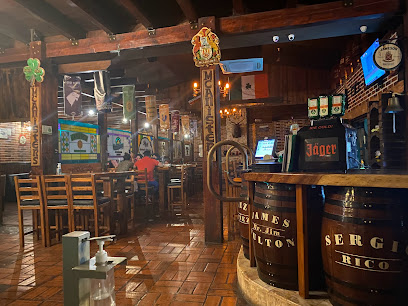
RadioHouse
Experience the best of Honduran cuisine at RadioHouse, a vibrant restaurant in Tegucigalpa, perfect for tourists craving authentic flavors.
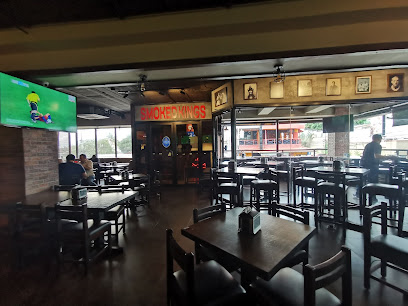
Bar Quinto Patio Cervecero
Experience the vibrant nightlife at Bar Quinto Patio Cervecero in Tegucigalpa, where local brews and lively ambiance await every visitor.
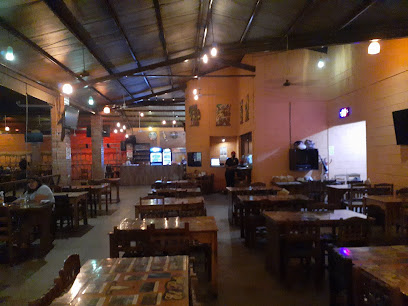
The Pub by Beer Box
Experience the vibrant nightlife at The Pub by Beer Box in Tegucigalpa, offering an extensive drink menu and delicious food in a lively atmosphere.
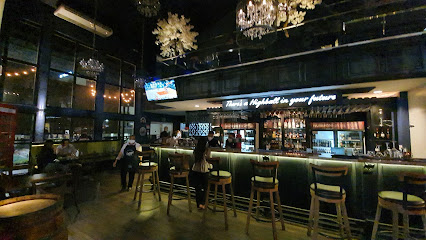
Glenn's Pub Pizza
Savor delicious pizza and vibrant nightlife at Glenn's Pub Pizza in Tegucigalpa, where locals and travelers unite over great food and drinks.
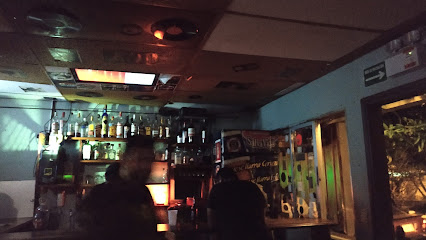
Tequila Limón
Experience the vibrant nightlife of Tegucigalpa at Tequila Limón, a bar offering a rich selection of cocktails and a lively atmosphere.
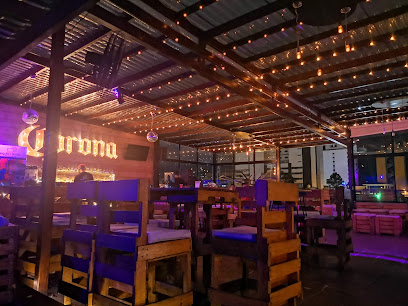
Viher Bar
Experience the vibrant nightlife of Tegucigalpa at Viher Bar, where affordable drinks meet a lively atmosphere perfect for socializing.
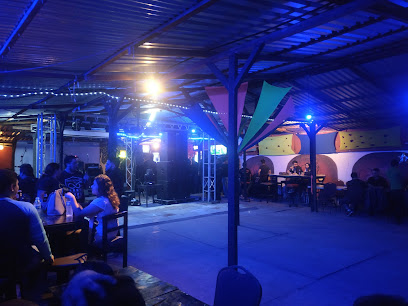
Doce Terraza Lounge
Experience the vibrant nightlife of Tegucigalpa at Doce Terraza Lounge, where delicious cocktails and stunning views come together in a lively atmosphere.
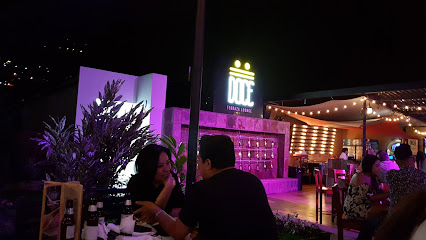
The Winery
Experience the best of local and international wines at The Winery in Tegucigalpa, where every sip tells a story.
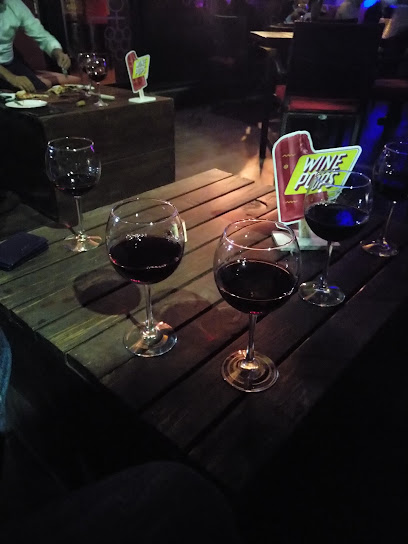
The Spot
Experience the vibrant nightlife at The Spot in Tegucigalpa, where great drinks and dancing come together for a memorable evening.
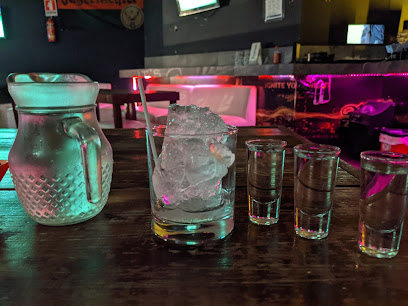
Sky Bar
Experience breathtaking views and vibrant nightlife at Sky Bar in Tegucigalpa, the perfect rooftop escape for tourists seeking adventure and relaxation.
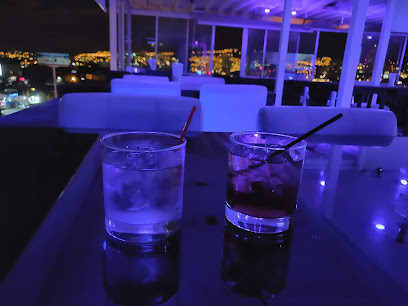
Bar La Embajada
Experience the vibrant nightlife of Tegucigalpa at Bar La Embajada, where local flavors and lively atmosphere await every visitor.
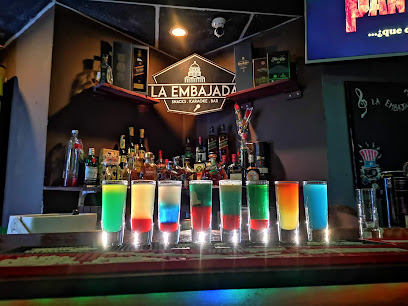
Coco pito
Discover the lively nightlife of Tegucigalpa at Coco Pito, a bar known for its delicious cocktails and vibrant atmosphere.
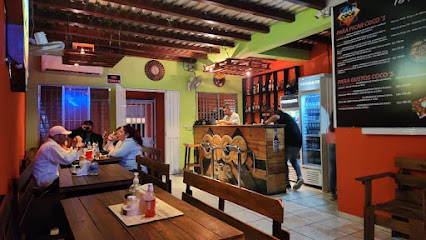
Local Phrases
-
- HelloHola
[oh-lah] - GoodbyeAdiós
[ah-dee-ohs] - YesSí
[see] - NoNo
[noh] - Please/You're welcomePor favor/De nada
[por fah-bohr/de nah-dah] - Thank youGracias
[grah-see-ahs] - Excuse me/SorryDisculpe/Perdón
[dees-kool-peh/pehr-dohn] - How are you?¿Cómo estás?
[koh-moh ehs-tahs] - Fine. And you?Bien. ¿Y tú?
[byen. ee too] - Do you speak English?¿Hablas inglés?
[ah-blahs een-glehs] - I don't understandNo entiendo
[noh ehn-tyen-doh]
- HelloHola
-
- I'd like to see the menu, pleaseMe gustaría ver el menú, por favor
[meh goos-tah-ree-ah behr ehl meh-noo, por fah-bohr] - I don't eat meatNo como carne
[noh koh-moh kahr-neh] - Cheers!¡Salud!
[sah-loohd] - I would like to pay, pleaseMe gustaría pagar, por favor
[meh goos-tah-ree-ah pah-gahr, por fah-bohr]
- I'd like to see the menu, pleaseMe gustaría ver el menú, por favor
-
- Help!¡Ayuda!
[ah-yoo-dah] - Go away!¡Vete!
[veh-teh] - Call the Police!¡Llama a la policía!
[yah-mah ah lah poh-lee-see-ah] - Call a doctor!¡Llama a un doctor!
[yah-mah ah oon dohk-tohr] - I'm lostEstoy perdido
[ehs-toy pehr-dee-doh] - I'm illEstoy enfermo
[ehs-toy ehn-fehr-moh]
- Help!¡Ayuda!
-
- I'd like to buy...Me gustaría comprar...
[meh goos-tah-ree-ah kohm-prahr] - I'm just lookingSólo estoy mirando
[soh-loh ehs-toy mee-rahn-doh] - How much is it?¿Cuánto cuesta?
[kwan-toh kwehs-tah] - That's too expensiveEso es demasiado caro
[eh-soh ehs deh-mah-see-ah-doh kah-roh] - Can you lower the price?¿Puede bajar el precio?
[pweh-deh bah-hahr ehl pree-syoh]
- I'd like to buy...Me gustaría comprar...
-
- What time is it?¿Qué hora es?
[keh oh-rah ehs] - It's one o'clockEs la una
[ehs lah oo-nah] - Half past (10)Las diez y media
[lahs d'yehs ee meh-dee-ah] - MorningMañana
[mah-nyah-nah] - AfternoonTarde
[tahr-deh] - EveningNoche
[noh-cheh] - YesterdayAyer
[ah-yehr] - TodayHoy
[oy] - TomorrowMañana
[mah-nyah-nah] - 1Uno
[oo-noh] - 2Dos
[dohs] - 3Tres
[trehs] - 4Cuatro
[kwa-troh] - 5Cinco
[seen-koh] - 6Seis
[says] - 7Siete
[syeh-teh] - 8Ocho
[oh-choh] - 9Nueve
[nweh-veh] - 10Diez
[dyehs]
- What time is it?¿Qué hora es?
-
- Where's a/the...?¿Dónde está...?
[dohn-deh ehs-tah] - What's the address?¿Cuál es la dirección?
[kwahl ehs lah dee-rehk-syon] - Can you show me (on the map)?¿Puede mostrarme (en el mapa)?
[pweh-deh mohs-trar-meh (ehn ehl mah-pah)] - When's the next (bus)?¿Cuándo es el próximo (autobús)?
[kwan-doh ehs ehl prohk-see-moh (ow-toh-boos)] - A ticket (to ....)Un boleto (a ....)
[oon boh-leh-toh (ah)]
- Where's a/the...?¿Dónde está...?
History of Tegucigalpa
-
Tegucigalpa was founded on September 29, 1578, during the Spanish colonial period. It was originally established as a mining town due to its rich deposits of silver and gold. The city’s name is derived from the Nahuatl language, meaning 'silver mountain.'
-
Tegucigalpa became the capital of Honduras in 1880, replacing Comayagua. This decision was influenced by its growing economic importance and strategic location. The city has since been the political and administrative center of the country.
-
In the early 19th century, Tegucigalpa played a role in the Central American Federation, a union of Central American states that sought independence from Spain. The federation ultimately dissolved in 1838, but Tegucigalpa continued to be a key urban center in the region.
-
The 20th century saw significant modernization efforts in Tegucigalpa, including infrastructure development, the establishment of educational institutions, and improvements in public services. The city expanded rapidly, incorporating neighboring Comayagüela to form the Central District.
-
In 1998, Tegucigalpa was severely affected by Hurricane Mitch, one of the deadliest Atlantic hurricanes in history. The storm caused widespread destruction, particularly along the Choluteca River, and led to significant loss of life and property. The city has since undergone extensive reconstruction.
-
Tegucigalpa is home to numerous cultural landmarks, including the historic Cathedral of St. Michael the Archangel, the National Art Gallery, and the former Presidential Palace. These sites reflect the city's rich colonial history and its evolution over the centuries.
-
Tegucigalpa has witnessed various episodes of political unrest, including the 2009 coup d'état that ousted President Manuel Zelaya. These events have often led to significant social and economic challenges for the city's residents.
-
In recent years, Tegucigalpa has experienced economic growth and development, driven by sectors such as manufacturing, commerce, and services. The city is also a hub for international organizations and NGOs working in Honduras.
Tegucigalpa Essentials
-
Tegucigalpa, the capital city of Honduras, is accessible via the Toncontín International Airport (TGU), which is about 6 kilometers from the city center. Direct flights are available from various major cities in the United States, Central America, and other parts of the world. From the airport, you can take a taxi or arrange a shuttle service to your accommodation. Buses and private cars are also viable options for getting to Tegucigalpa from other Honduran cities.
-
Getting around Tegucigalpa can be done by taxis, buses, and car rentals. Taxis are widely available and relatively inexpensive, but always ensure to agree on the fare before starting your journey. Public buses are a cost-effective option, although they can be crowded and less reliable. Renting a car provides flexibility, but be prepared for heavy traffic and challenging driving conditions. Ride-sharing services like Uber are also operational in the city, offering a convenient alternative to traditional taxis.
-
The official currency in Honduras is the Lempira (HNL). Credit and debit cards are widely accepted in hotels, restaurants, and larger shops in Tegucigalpa. However, smaller vendors and markets may only accept cash, so it is advisable to carry some Lempira with you. ATMs are available throughout the city, but it is wise to use those located in secure, well-lit areas such as shopping malls or hotel lobbies.
-
While Tegucigalpa has areas that are safe for tourists, it also has neighborhoods with higher crime rates. Avoid walking alone at night, especially in areas like Comayagüela and certain parts of downtown. Stick to well-lit, busy areas and avoid displaying valuable items. Always use registered taxis or ride-sharing services, and be cautious when using public transportation. Stay informed about local news and heed the advice of locals and hotel staff regarding safety.
-
In case of an emergency, dial 911 to reach police, fire, and medical services. It is recommended to carry a copy of your passport and important documents. The Hospital Escuela Universitario is one of the main hospitals in Tegucigalpa for medical emergencies. For minor health issues, pharmacies are widely available, and many staff members speak English. Ensure you have travel insurance that covers medical emergencies and keep the contact information for your embassy or consulate handy.
-
Fashion: Do dress modestly and comfortably. Avoid flashy jewelry and expensive accessories to minimize the risk of theft. Religion: Do respect local religious customs. When visiting churches, dress conservatively and avoid talking loudly. Public Transport: Do keep an eye on your belongings and be cautious of pickpockets. Don't travel alone on public buses after dark. Greetings: Do greet people with a handshake and a smile. A simple 'Buenas' is a polite greeting. Eating & Drinking: Do try local dishes such as baleadas and tamales. Don't drink tap water; always opt for bottled water.
-
To experience Tegucigalpa like a local, visit the Mercado La Isla for a taste of local life and fresh produce. Spend time in El Picacho Park for panoramic views of the city. Engage with locals who are often friendly and eager to share their culture. Attend a local football match or a cultural event to immerse yourself in the local atmosphere. For authentic dining experiences, try small, family-run restaurants known as 'comedores'.
Trending Landmark in Tegucigalpa
-
Parque El Picacho
-
Hotel Real InterContinental Tegucigalpa
-
Parque Central Tegucigalpa
-
Clarion Hotel Real Tegucigalpa
-
Basílica de Nuestra Señora de Suyapa
-
El Patio
-
La Creperia
-
Parque Cerro Juana Lainez
-
Chiminike
-
Museum for National Identity
-
La Leona Park
-
Building Center Tower Morazan
-
Metropolitan Zoo Rosy Walther
-
Mc Allister's Irish Pub
-
Finca La Cantadora
Nearby Cities to Tegucigalpa
-
Things To Do in San Miguel
-
Things To Do in Gracias
-
Things To Do in Jinotega
-
Things To Do in San Pedro Sula
-
Things To Do in Santa Rosa de Copán
-
Things To Do in La Ceiba
-
Things To Do in Suchitoto
-
Things To Do in Puerto Cortés
-
Things To Do in San Salvador
-
Things To Do in Utila
-
Things To Do in Copán Ruinas
-
Things To Do in Puerto Barrios
-
Things To Do in Managua
-
Things To Do in La Libertad
-
Things To Do in Santa Ana











